Profile: A Legacy of Leadership: Reflections from LKCMedicine’s founding Chairman, Governing Board
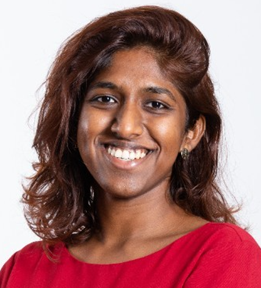 | By Retna Devi, Senior Assistant Manager, Media and Publications |
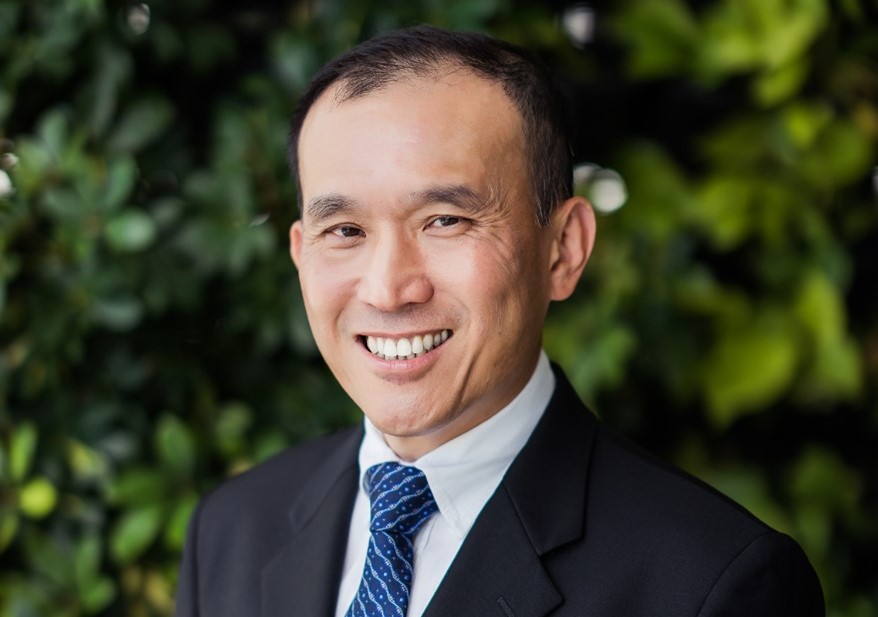
A historic call. A BIG challenge. A pivotal decision.
That call was made in mid-2010 to former Chief of Defence Force Mr Lim Chuan Poh, a trailblazing public servant who is no stranger to tough assignments.
The ask was to be the founding chairman of a yet-to-be-named joint medical school by Nanyang Technological University, Singapore and Imperial College London. They had just put the final touches to a Collaboration Agreement that was to seal their partnership right up to 2028, to build, develop, and grow Singapore’s only second undergraduate medical school for its most capable and committed students.
Having previously guided the establishment of Duke-NUS Graduate Medical School, Mr Lim was up for the challenge.
Education is close to his heart. He was Permanent Secretary at the Ministry of Education from 2003 to 2007, where he oversaw the transformation of publicly funded universities into autonomous universities and help them develop into world-class research-intensive institutions. He was also involved in the setting up of Northlight School, one he was very much proud of, giving Singapore’s less academically inclined students another pathway at making good.
Fast forward to today, 14 years later, Mr Lim remains at the helm of LKCMedicine as Chairman of the Governing Board, contributing to the School’s MBBS programme being internationally benchmarked, with a reputation for being innovative, highly student-centric and producing doctors who put patients at the centre of what they do. After guiding LKCMedicine through many significant milestones, Mr Lim will step down from his position on 1 January 2025.
Recalling how his journey with LKCMedicine began, Mr Lim, who is also currently Chairman of Singapore Food Agency and ST Logistics, said, “It was done at two junctures. Imperial was looking for an international opportunity and NTU was interested in starting a medical school. Then-chairman of NTU Board, Mr Koh Boon Hwee, invited me to a lunch with the Imperial and NTU leadership. The direct question that was asked of me was to explain the success [to the setting up of] Duke-NUS Graduate Medical School (Duke-NUS). I shared some of the critical success factors that brought Duke-NUS to where it was, they listened, and it was left as that.”
“They must have taken it quite seriously because in the lead up to the signing of the Collaborative Agreement in 2010, both NTU and Imperial leadership wrote to me requesting that I chair the School’s Pro-Tem Governing Board (PTGB). What I had said at that lunch must have given them some confidence and clarity.”
While Mr Lim’s experience building a medical school ground-up was admirable, his exemplar career in the public service spanning about three decades further instilled confidence in NTU and Imperial, making him the best person to lead LKCMedicine.
Apart from being PS (Education) and Armed Forces Chief, he was Chairman of the Agency for Science, Technology & Research (A*STAR) and has been a member of NTU’s Board since 2003.
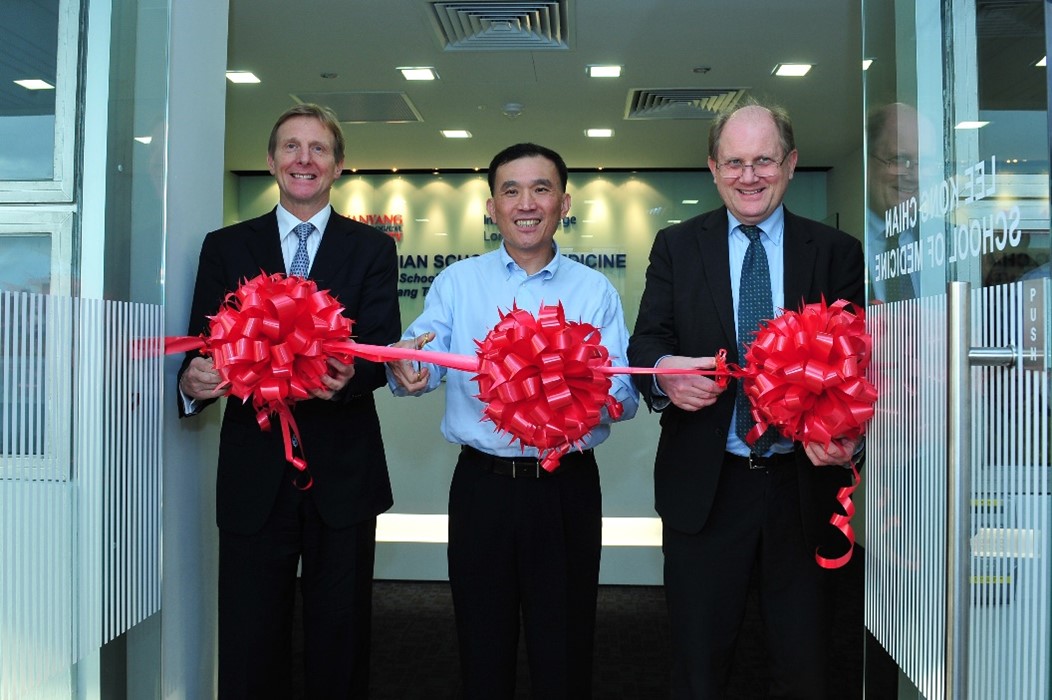
Having been with LKCMedicine since its very first day, Mr Lim reflects on the seminal moments during his time as the School’s inaugural Chairman.
Charging ahead to start on the right note
Mr Lim was quick to galvanise the PTGB, which comprised stakeholders and industry experts who would closely guide the development of the School especially in the initial years.
During the signing ceremony, Mr Lim set the direction by underscoring the reason for establishing the School, “Starting a new medical school is an exciting and meaningful development for Singapore. It opens another pathway for young Singaporeans to pursue a world-class medical education. At the same time, it fulfils a need to produce enough of our own doctors to meet the increasing demands for affordable and quality healthcare of Singaporeans. Our aim is to see top quality doctors, medical leaders and researchers emerge from this School in the new future[1].”
Crystallising the objectives of the School was an important step, but Mr Lim was also cognisant that time was of the essence. Building a strong foundation during this formative stage was crucial and had to be done quickly.
“I told every one of the PTGB members that we are going to have a meeting once every month (not including the Board level committees) because we don’t have time to lose…I told them this is really our most significant phase, we got to be very committed. Fortunately, we had very committed members[2].”
It was this decisive and hands-on leadership that sharpened the Board’s focus and priorities, setting the groundwork for the first phase of establishing LKCMedicine.
Building connections and aligning expectations
Being a new medical school, LKCMedicine was entering the medical education and healthcare arenas with many established incumbent players, some with a very long history. If the School was to make an indelible mark in these fields, the leadership tasked with creating LKCMedicine’s blueprint could not act in silos.
Mr Lim took great strides to ensure that LKCMedicine was warmly welcomed by the other medical schools and healthcare clusters, and that the School leadership engaged with its stakeholders to gather feedback and engaged in meaningful conversations about expectations.
These conversations were held over two days as part of the PTGB Advance in 2011. “We had deep, in fact profound, engagements with different stakeholders in the landscape,” shared Mr Lim. “In those sessions, we heard from the sister medical schools, and the Ministries of Health and Education to glean insights into how they viewed the healthcare landscape evolving and what kind of doctors they wanted to see. We also heard from the students still in school, whether at NUS Medicine or Duke-NUS, and those who had already graduated, to hear what they deemed were useful and what they wished they had been taught. We paid attention to their perspectives”.
“But what was truly profound was hearing from the patients. There was a patient who readily agreed to be interviewed even though he was very sick. At the time when he was supposed to participate, his condition took a turn for the worse. We had to let him speak from the hospital bed. Yet, he was very positive in wanting to tell us how he saw the healthcare system, how he has benefitted from it and what has to be done right for patients.” [Afternote: the patient has since passed on but his contribution remains significant to this day.]
These deep discussions brought the School leadership much-needed clarity and a nuanced appreciation of what they had to accomplish in the next few years and how to sharpen LKCMedicine education’s focus in Singapore.
Never losing sight of the School’s identity
Throughout his leadership, Mr Lim has remained deeply committed to LKCMedicine’s vision: redefining medicine and transforming healthcare, and its mission: producing doctors you and I would like caring for us.
“I have always been guided by the vision and mission — this is how we stayed focus on doing the right thing. If we have an excellent School and good ranking, but are unable to actualise the vision and mission, we would have missed the most important mark,” said Mr Lim.
Crafting the vision and mission statements to shape the School’s ethos was no easy feat. Months of discussions and interviews as part of LKCMedicine’s first branding exercise were conducted, so that the School could articulate its identity and, most importantly, resonate with LKCMedicine students.
Mr Lim remembers setting the ground rules during the process, “I told the people present, both the governing board members and the medical school that first and foremost, the vision and mission must be one that the School leadership and staff as well as the students can identify with[3].”
After all, a strong ethos lays the foundation and steadily guides the School as it navigates periods of challenges and transformation. “Building an institution is one thing, but what next? Staying very true to why the School is created and our goal of nurturing doctors you and I would like caring for us will answer that question. These ideals are already imbued into LKCMedicine and the leadership.”
Propelled by Singapore’s largest philanthropic gift
Another one of the turning points for LKCMedicine was in November 2010. The School had received a transformative contribution that would fuel it for years to come.
The Lee Foundation, founded by renowned business leader, pioneer and philanthropist Tan Sri Dato Lee Kong Chian, had pledged an endowed gift of S$150 million with half of the sum going directly to needy students. The gift, enhanced by government matching, amounted to S$400 million.
This landmark gift gave the School its name and put flesh on the plans to develop the next powerhouse in medicine.
On LKCMedicine being a recipient of the single largest gift to any institution in Singapore, Mr Lim noted that the late Dr Lee’s selflessness and dynamic vision is a source of inspiration for generations of students. It is also a driver for new research ideas and breakthroughs.
“Establishing a medical school through a partnership between two world-class research intensive universities — NTU and Imperial — significantly expands the opportunities for multidisciplinary research such as biomedical engineering, translational and clinical research, and also health services research. Breakthroughs in these areas not only directly benefit Singaporeans but also contribute to the wellbeing of the wider regional and global community. The Lee Foundation’s gift therefore has a multiplier effect that extends beyond the medical school[4],” Mr Lim said.
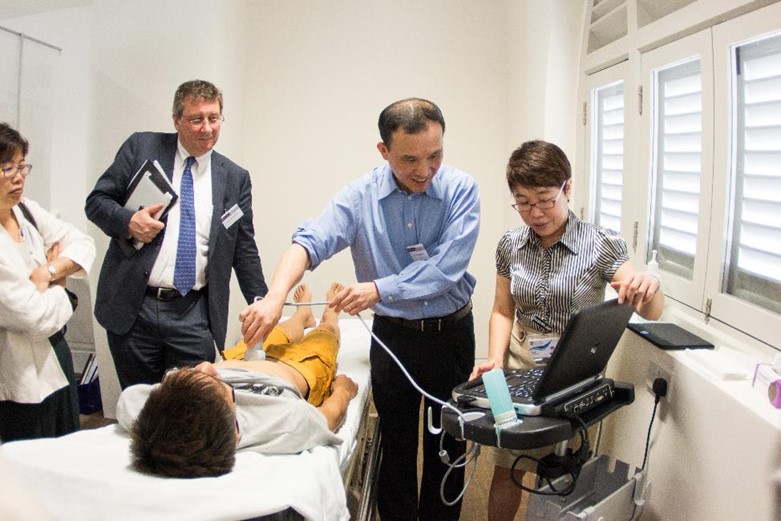
Embracing bold innovations in education
Mr Lim’s pivotal role in guiding the establishment of Duke-NUS previously has been crucial to shaping the programme at LKCMedicine. Armed with the insights, Mr Lim found the opportunity to set up another medical school exciting, particularly because “[one] can adopt a bolder approach when doing something for the second time.”
This is reflected in the decision to adopt Team-Based Learning (TBL) as part of LKCMedicine’s pedagogy. Mr Lim recalled, “When engaging the leadership [about the curriculum design and delivery], I was able to push them to be bolder, to go even further. To their credit, they did. The curriculum team came back with a much bolder plan that we went forward with, and the School is much better for it.”
With TBL a cornerstone of LKCMedicine’s MBBS programme, the School has won acclaim from experts and students about the calibre of its medical education. LKCMedicine was even awarded the prestigious ASPIRE Award for excellence in curriculum development in 2021.
It is this bold and strategic counsel that continues to place the School ahead of the curve; ensuring that LKCMedicine graduates are sure-footed in the face of a changing healthcare system.
The recent enhancements to the School’s curriculum to prepare medical students for a rapidly evolving and tech-driven healthcare landscape, particularly in AI, foster mental resilience and professional development, further demonstrates this forward-thinking approach.
Placing equal emphasis on research
Mr Lim adopted a similarly bold attitude for LKCMedicine’s research strategy. It was evident to him that a medical school is where education and research intersect, and that LKCMedicine is a catalyst for translational and clinical biomedical research that would benefit patients and the population. This is familiar ground for him, having been A*STAR chief from 2007 to 2019.
To realise this goal, Mr Lim saw the importance of concurrently working on fostering the School’s research ecosystem. Mr Lim recalled, “I flew out to London to meet the [Imperial] President and of course the people overseeing research as well as the staff working on the medical school just to underscore the significance of getting the research strategy to run alongside the development of the pedagogy and the curriculum[1].”
This emphasis on research and addressing disease priority areas that are relevant both locally and globally, gave birth to the School’s five key research foci: Neuroscience and Mental Health, Population/Global Health, Respiratory and Infectious Diseases, Nutrition, Metabolism & Health and Skin Diseases and Wound Repair.
It also paved the way for recruitment of internationally and locally renowned researchers and faculty as well as successful research collaborations with NTU, the National Healthcare Group (NHG), A*STAR and other institutions in Singapore and around the world.
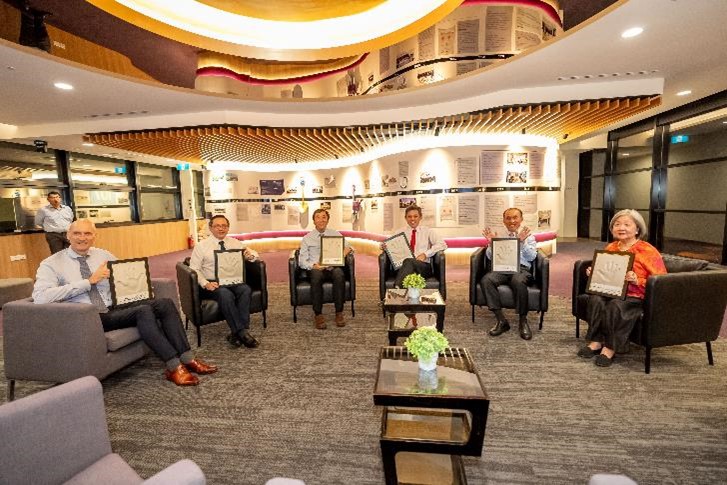
Looking ahead
For Mr Lim, one of the most fulfilling aspects of his leadership is seeing LKCMedicine grow and then transition from a joint medical school to an NTU medical school, ahead of the conclusion of its partnership with Imperial in 2028.
“We are able to talk about the School’s future and its exciting possibilities and opportunities because the partnership was successful. Otherwise, we won’t be talking about the last 14 years, with four more years to go, in the way we are. It is very rewarding because undergirding the ability to look ahead is that the partnership is an enormous success,” noted Mr Lim.
“This is therefore a good juncture for LKCMedicine and perhaps for my role with the School to have a change.”
As Mr Lim prepares to pass the torch to Ms Chan Lai Fung, another distinguished public servant, the LKCMedicine community expresses deep gratitude for his leadership over the past 14 years. On Mr Lim’s visionary leadership, Ms Chan said:
“LKCMedicine has had many firsts in its push for cutting-edge medical education and research, and this is in no small measure due to Chuan Poh’s outstanding leadership. His counsel contributed to the School’s MBBS programme being internationally benchmarked, with a reputation for being innovative, highly student-centric and producing doctors who put patients at the centre of what they do.
Chuan Poh has had a distinguished career spanning many sectors. He has steered and provided invaluable guidance to a number of successful new initiatives. LKCMedicine is fortunate to have had Chuan Poh as its founding Chairman.”
Mr Lim’s counsel and dedication have been instrumental in shaping LKCMedicine into the dynamic and innovative institution it is today.

